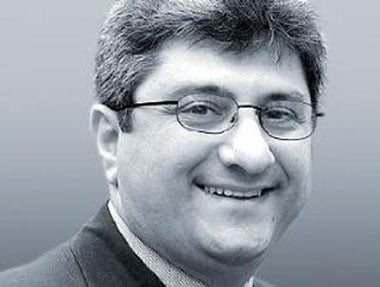Practicing Muslims and social (in)justice

Date posted: March 29, 2013
Ihsan Yilmaz
Ten years ago, it was maybe futile to talk about the lack of sensitivity of practicing Muslims on social justice issues. But now, with increasing democratization, windows of opportunity and economic growth, it is high time that practicing Muslims devote most of not only their wealth but also their mental energies and time to figuring out how to tackle social injustices, first in their own countries and then in the world.
| Fethullah Gülen with his new ijtihad (body of Islamic rulings) reinterpreted this main pillar and for the last four decades has insisted that zakat could be used to build secular schools to educate people so that they could protect themselves against ignorance, poverty and chaos. He has also repeatedly underlined that 2.5 percent is the minimum for most Muslims and that one should strive to give more. Yet, this ijtihad and similar ones must be institutionalized and made widespread. |
If life is essentially a test, then I cannot see a bigger test and challenge than this obvious but agonizing fact. In the famous Hadith Qudsi, we are told that on Judgment Day, God will ask each person why he did not feed God, even though He had asked for food. The person will object and say, “O Lord, and how should I feed You when You are the Lord of the worlds?” God will reply by saying that a hungry person had knocked on the man’s door, asking for food but he had refused to give him food.
I apply the same logic to the cases of the needy in our countries. Several million in Turkey and a few billion around the world cannot feed their children. Those who do have this minimum amount of food cannot earn enough money to pursue lives congruent with human dignity. When it comes to rhetoric, we Muslims proudly boast that humans are vicegerents of God on Earth. But we do not actually care that billions of these so-called vicegerents of God live in misery.
The attitude of most practicing Muslims who find it enough to give away only a very little portion of their income or wealth to the cause of social justice shows that they are indeed waiting for the Messiah who will come and feed all these billions of humans. For some, this messiah is the so-called Islamic state. Until it is formed, it seems that they will continue to follow their neo-liberal and capitalist ways. Giving very little charity and going to pilgrimage every year satisfies their conscience.
I am of course not disregarding the many sincere people who devote their time and money to philanthropic causes. But they are a marginal minority. Most of us, including myself, are so afraid of our future that we accumulate wealth that we will never use. John Locke, who argued that private property is the cornerstone of human rights and liberties, was concerned about this and put that the state can limit this accumulation of wealth for the sake of social justice. Jean-Jacques Rousseau was of course more radical on the issue of private property; in his eyes, the invention of private property disturbed harmonious and peaceful life in the state of nature. For the sake of more equality, social justice and balance, he argued that general will could limit accumulation of wealth.
Islam from the very beginning has been aware of this concern. It has not only encouraged charity but also made it obligatory to give 2.5 percent of one’s wealth (not income) every year as charity. This is called “zakat.” It is one of the five fundamental pillars of Islam. Islamic scholars, intellectuals and academics must as soon as possible find both civilian and state-centric ways of adapting zakat and try to institutionalize it. Zakat does not have to be given directly to the poor as “fish,” but why can’t it also be used to teach people “how to fish”?
Fethullah Gülen with his new ijtihad (body of Islamic rulings) reinterpreted this main pillar and for the last four decades has insisted that zakat could be used to build secular schools to educate people so that they could protect themselves against ignorance, poverty and chaos. He has also repeatedly underlined that 2.5 percent is the minimum for most Muslims and that one should strive to give more. Yet, this ijtihad and similar ones must be institutionalized and made widespread.
While the burden of spending more of their wealth for social justice, charitable causes and philanthropy is on the shoulders of people who have more than enough for a standard level of living, the mental and scholarly burden is on the shoulders of practicing Muslims scholars, intellectuals, thinkers and academics. But it seems that most of them, like myself, are obsessed with power and politics and do not have any time and mental energy left for the biggest test. What a pity.
Source: Today’s Zaman March 29, 2014
Tags: Fethullah Gulen |
























